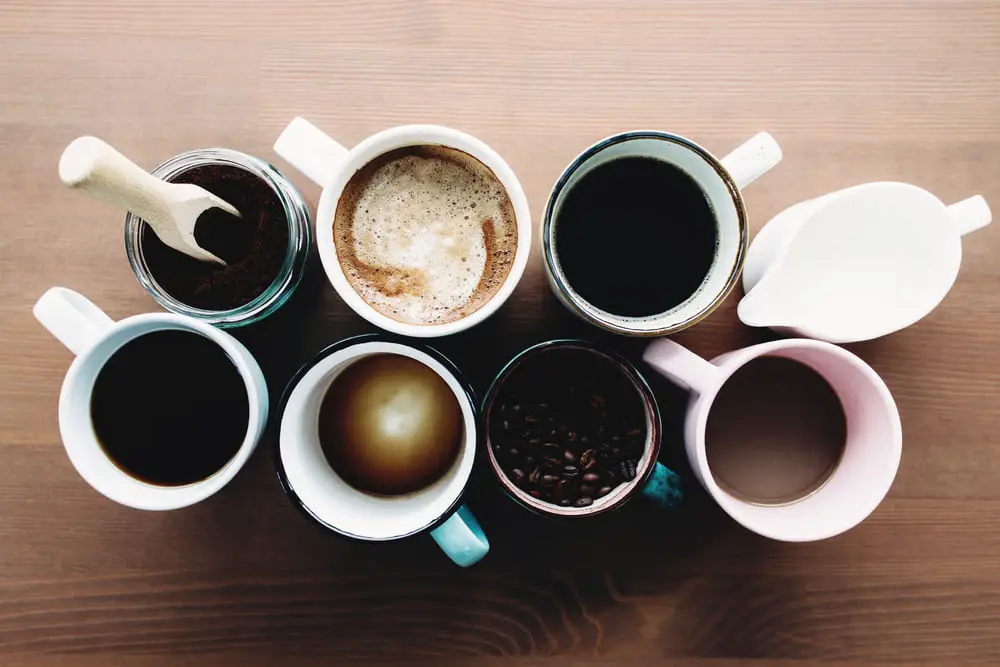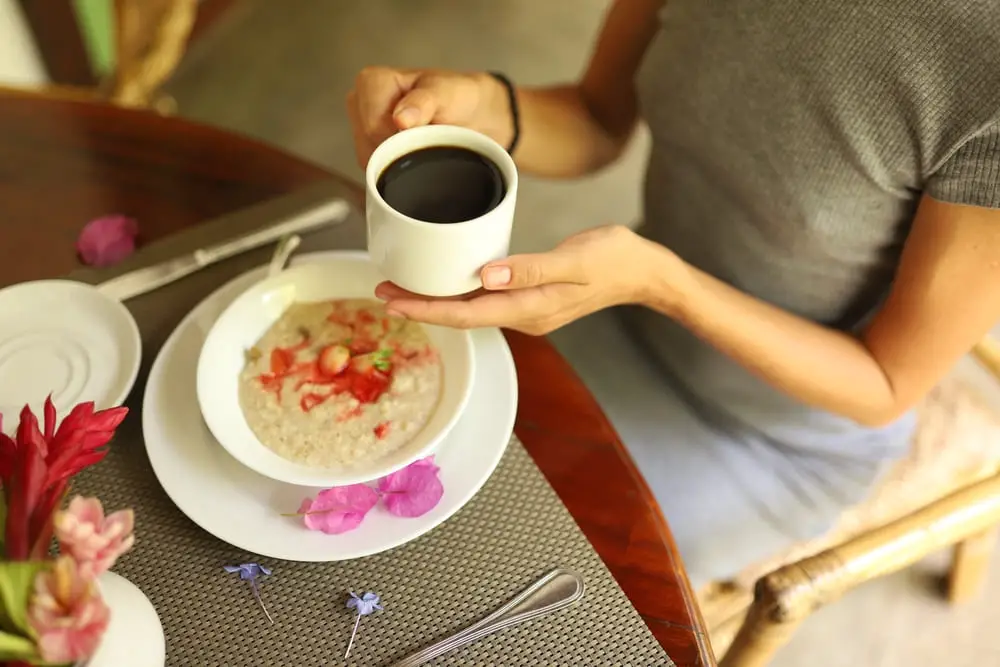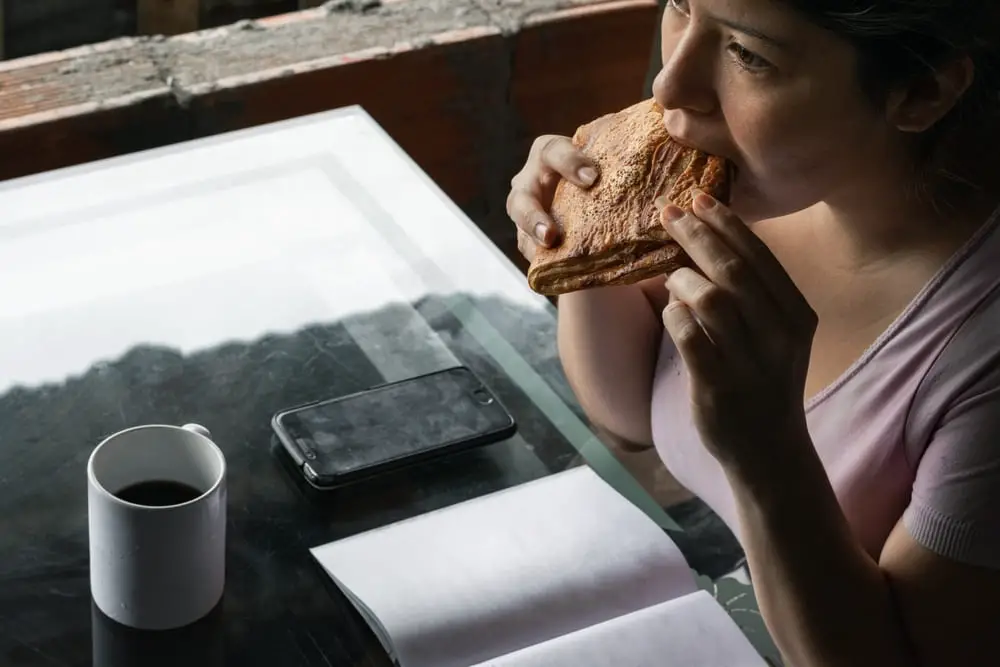Coffee is usually the beverage which is selected to be involved in breakfast or considered to be the energy drink of many coffee lovers. There are also other people who have coffee after their dinner or any meal as their habit or tradition.

You might wonder whether you can drink coffee after a meal or if yes, what is the reason why people drink coffee after eating? In this article, let’s dive in to find out more about the answer.
Why do people drink coffee after a meal?

Typically, coffee and mornings go hand in hand. Often, when we think about coffee, we picture the drowsy, pre-caffeine hours at the beginning of each day. However, it is even more than that.
Firstly, it is because of the culture or family tradition. Although not every country has the culture of drinking coffee after dining, it is an interesting cultural custom to talk about.
In Venezuela, the Spanish-speaking world is at a critical juncture right now. “Sobremesa” refers to the time spent conversing, sipping coffee, or having a nice conversation with those with whom you had a meal. You must remain after eating; it is not permitted for you to simply stand up and go. It can persist for 30 minutes or for the rest of time—really, two to three hours at most.
In addition, France is also a nation where this culture occurs. After dinner, coffee will be served with a “cogma” in a French family. This brings a cozy atmosphere and starts close conversations among members of a family.
Secondly, it is simply a habit. Some people really love coffee and drink whenever they want, not only after meals. Drinking coffee is easily formed as a habit if you do it frequently in a period of time and it might become caffeine independent if you drink coffee excessively.
A number of people drink coffee right after meals because of losing weight too. Coffee can be a calorie counter in case you drink it properly.
Is it better to drink coffee before or after a meal?

While there are people who drink coffee after meals, others have a habit of drinking coffee before they eat. Then should coffee be consumed before or after meals? And what time should we drink coffee to get the best result?
Before a meal, what will happen if you drink a cup of coffee? According to an academic article “Caffeine, coffee, and appetite control: a review”, the effect of drinking coffee before eating is revealed. This review examined the data pertaining to coffee as well as caffeine’s effects on calorie intake and appetite regulation.
Coffee and caffeine consumption has global popularity. However, evidence for the potential of these dietary constituents to influence energy intake, gut physiology, and appetite perception remains unclear. The purpose of this review was to examine the evidence regarding coffee and caffeine’s influence on energy intake and appetite control.
According to the literature evaluation, caffeine taken 0.5–4 hours before a meal may reduce acute energy intake whereas coffee taken 3–4.5 hours before a meal had no effect on food and macronutrient consumption. There is conflicting evidence about how caffeine and coffee affect stomach emptying, appetite hormones, and feelings of hunger. Longer controlled trials are required to determine the impact of variables such as the genetics of caffeine metabolism and phenotype of the bitter taste.
Furthermore, all that much coffee can increase your stomach’s acid production, and if you haven’t eaten anything, the acid could perhaps damage the inner lining of your stomach and create indigestion and heartburn. Even if you consume decaffeinated coffee, it results in the same consequence.
Therefore, drinking coffee before eating when your stomach is empty significantly decreases your absorption and digestive system.
If drinking coffee before eating harms digestion and many more, then does having coffee after meals lead to any negative signals?
Coffee and decaffeinated coffee stimulate acid secretion. Moreover, numerous patients suffer dyspepsia due to coffee ingestion after. Thus, patients with peptic diseases are advised by physicians to avoid coffee completely. However, it is unknown whatever ingredient(s) in decaffeinated coffee are responsible for the beverage’s great efficacy in promoting gastrin and acid secretion.
Despite being frequently cited as a contributor to dyspeptic symptoms, there is no connection between coffee and dyspepsia. After drinking coffee, heartburn is the most often reported symptom.
Additionally, caffeine in coffee prevents iron absorption when consuming during and after a meal. The percentage of iron absorbed decreased from 5.88 percent to 1.64 percent and 0.97 percent, respectively, when a cup of drip coffee or instant coffee was consumed with a meal made with semi-purified ingredients.
When the strength of the instant coffee was doubled, the percentage of iron absorbed decreased to 0.53 percent. At the time coffee was drunk 1 hour before a meal, iron absorption did not diminish, but when coffee was consumed 1 hour later, the same level of inhibition as with contemporaneous eating was seen.
Coffee increases the production of gastrin and the secretion of stomach acid, although investigations on how it affects the lower esophageal sphincter pressure have produced inconsistent results. Additionally, coffee delays the proximal stomach’s adaptive relaxation, which raises the possibility that it could delay gastric emptying. However, according to other research, coffee has no impact on small bowel transit or stomach emptying.
To conclude, apart from some advantages that coffee provides after a meal, both drinking coffee before and after meals cause negative impacts on health. However, if you consider the time enjoying your coffee thoroughly, you’ll see the benefits that coffee brings about.
Does drinking coffee after a meal help digestion?
There has been an opinion indicating that drinking coffee improves the digestion process. The truth is that drinking coffee has not been linked to any negative consequences on the digestive system’s various organs, and several studies have shown that it has strong preventive properties against liver disorders including hepatic cancer.
However, necessary data to prove that coffee benefits steps of the digestion process is needed because most of the available data are not reliable enough to ensure the role of coffee consumption in the digestive system. With the use of contemporary technologies on broader demographic groupings, further prospective studies would be required.
Hence, coffee helps digestion after eating has not been confirmed yet.
